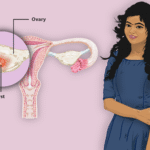Regular checkups provide an opportunity to detect potential issues early and support overall well-being. A comprehensive physical exam goes beyond routine screenings; it covers a wide range of assessments tailored to women’s health needs at different life stages. From evaluating reproductive health to monitoring hormonal health, these exams play a fundamental role in prevention and long-term care. Here’s what’s included in a comprehensive women’s physical exam:
General Health Assessments
Every women’s health physical exam begins with a general health assessment. A healthcare provider will measure your health signs, which include your blood pressure, heart rate, and temperature. They will also record your height and weight to calculate your Body Mass Index (BMI). This initial step provides a baseline of your current health status.
Your provider will also review your personal and family medical history. This conversation is a key opportunity to discuss new symptoms or health concerns you may have. The information you share helps your provider identify potential risk factors for chronic conditions like heart disease or diabetes.
Key Women’s Health Screenings
Women’s health screenings are fundamental for the early detection and prevention of various medical conditions. Key screenings include:
- Pap Smear: This involves collecting a small sample of cells from your cervix to screen for cervical cancer.
- Breast Exam: During a clinical breast exam, your provider will manually check your breasts for any lumps, changes in skin texture, or other abnormalities that could indicate breast cancer.
- Mammogram: Based on your age and risk factors, they may also recommend a mammogram, which identifies early signs of breast cancer.
- Bone Density Test: Assesses for osteoporosis, particularly post-menopause.
- Pelvic Exam: A pelvic exam involves a visual and physical examination of your reproductive organs.
- STI Testing: Screens for sexually transmitted infections, particularly in individuals with new or multiple partners.
These screenings, performed regularly as recommended by your healthcare provider, play a fundamental role in maintaining overall health and addressing potential issues early.
Preventive and Follow-up Screenings
Preventive care is a key aspect of women’s medical care. Your healthcare provider will make sure your immunizations, such as the flu shot or tetanus booster, are up to date. They may also suggest other screenings based on your age and health profile. Your provider may recommend a cholesterol screening to check your heart health or a bone density scan to test for osteoporosis, particularly as you get older. These other tests are helpful for early detection and management of various health conditions.
Lifestyle and Wellness Guidance
A comprehensive exam also includes a discussion about your lifestyle. Your provider will ask about your diet, exercise habits, and any use of tobacco or alcohol. This information helps them offer personalized advice to support your health goals.
Contemplate this appointment as an opportunity to ask questions and seek guidance on living a healthier life. Your provider can offer practical tips for improving your nutrition, managing stress, or starting a new fitness routine. This conversation is fundamental to building a strong, supportive relationship with your healthcare team.
Schedule your Women’s Health Checkup
A comprehensive physical exam is a key component of women’s health. It involves general health checks, specific screenings, preventive care, and personalized wellness advice. These appointments help you to stay informed about your health and address potential issues early. Contact a trusted provider near you today to schedule your next women’s health appointment.










